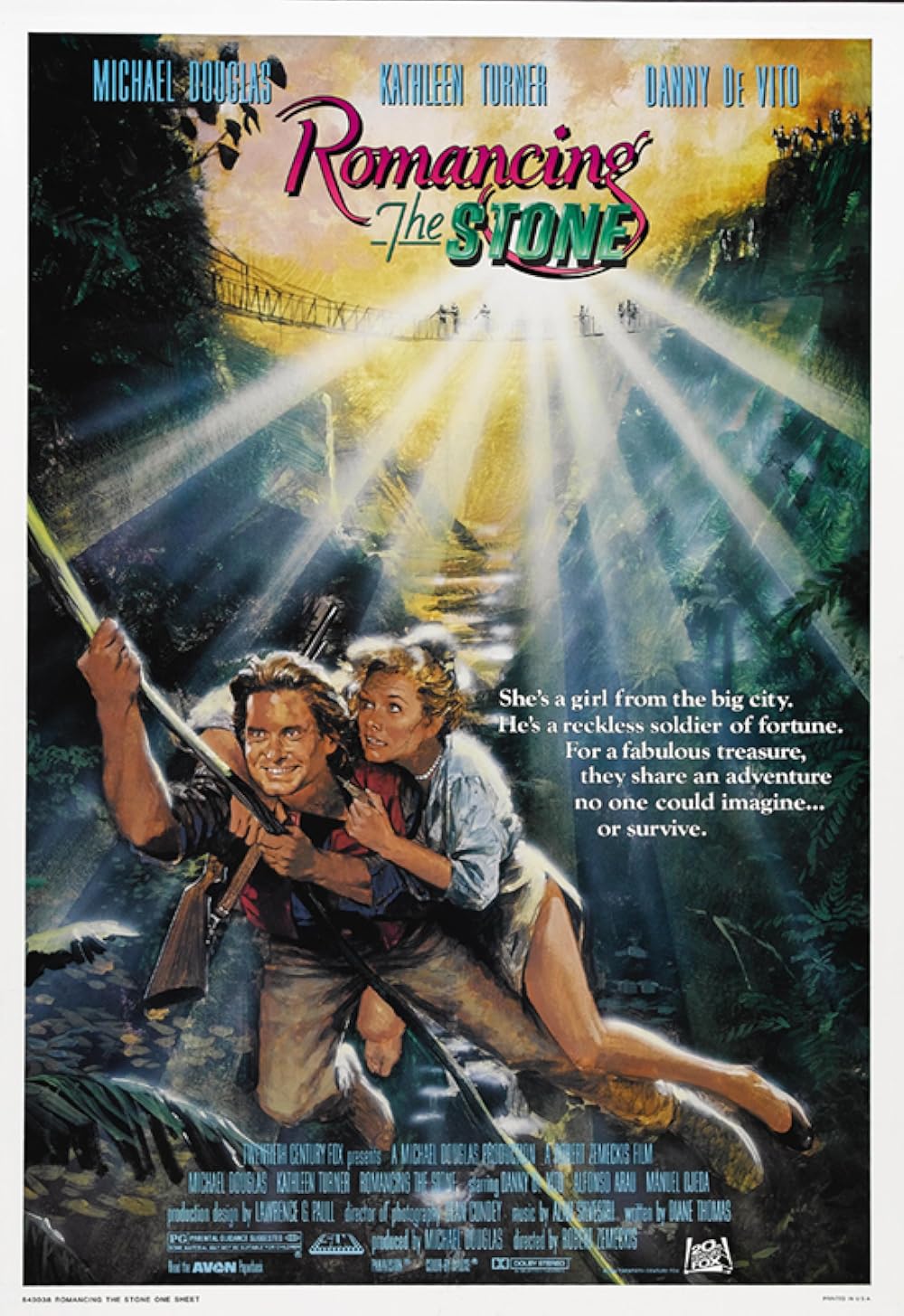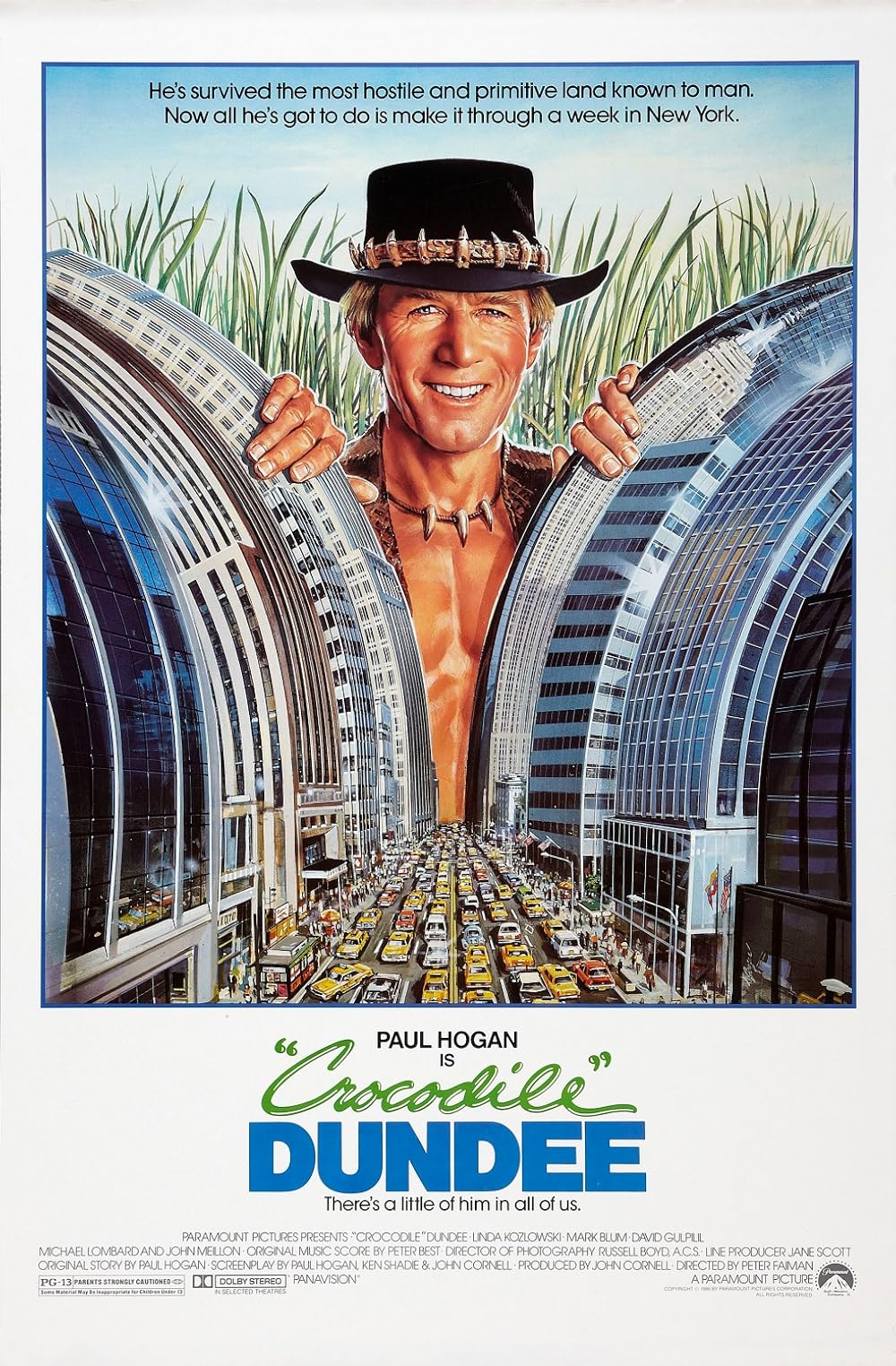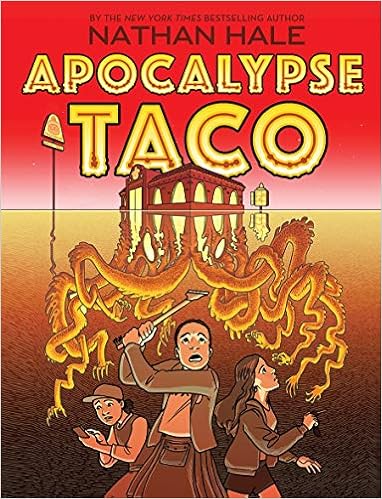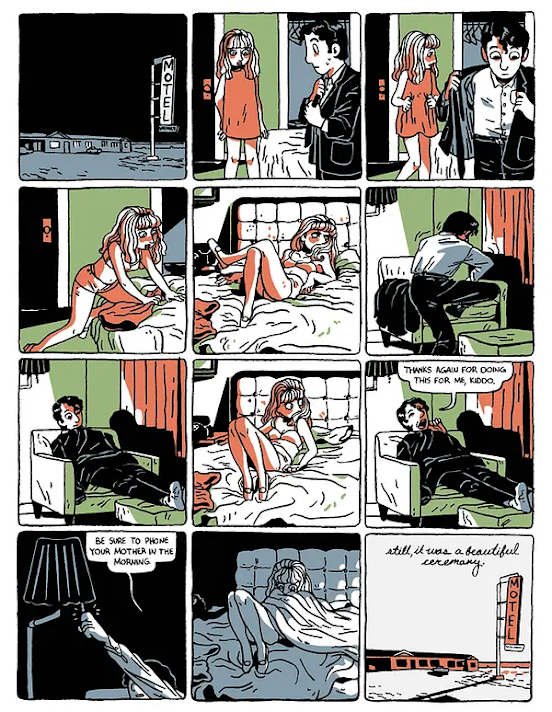 |
| ELSEWHERE library dvd |
This was a family favorite when I was a kid. Which is crazy because one of the only images I recall is, ah, family-awkward.
Anyway, I remembered it but hadn't really thought about rewatching it until the 80s All Over guys gave it a rapturous review a couple years ago. And they liked it so much (and told such an interesting/tragic story about the screenwriter) that I had to rewatch it. It just took this long.
Anyway, it is a very fun movie. It's not a masterpiece or anything but it is an excellent pop song. Terrific. You can play this baby at full blast and have a terrific time. So play it loud.
 |
| HOME Kanopy |
A family favorite! And, when I recently noticed the sequel on Kanopy, I knew we should watch it. But, since the baby hasn't seen the original, that should happen first. A brother showed it to her but she said she didn't like it. So we all watched to together to teach her how to laugh. And so, the entire film, she explained to us what would happen next and outlined her favorite parts, one by one.
Anyway, if you haven't seen it, this is the most surreally insane thing I've ever seen. And I love it so. It's hilarious.
 |
| HOME our dvd |
I haven't seen this since I was a kid and I had conflated it with the Very Special Episode. But the music has never left my head. Ends up there's a good reason for that. Schultz decided to take a break from Vince Guaraldi and try out a more commercial, Disneyesque sound, and, thus, naturally, hired the Sherman Brothers. It shows.
There are some scenes where the background is more Guaraldi-like, but largely the score follows the Shermans' lead. And it works, pretty much. The visuals are still pure Bill Melendez/Lee Mendelson goodness and they even get experimental with some moving cameras and forced perspectives. Visually, it's a treat.
So I don't know why this is the sole Peanuts feature to bomb. It's great. Critics agree. It's hilarious and jerks tears. What more do people want?? Maybe the 1972 boxoffice was more competitive than I realize? Dunno. But when you get Thurl Ravenscroft to sing a running gag, you're doing SOMETHING right.
 |
| HOME Kanopy |
So. Ends up it's not a movie. It's a collection of shorts. In English. With inconsistent voices. Some by Aardman which shoulds fine but they end up tasting Aardmany. (It's true: I thought so before we got to the credits.) And although the insanity was present it didn't feel quite so insane. I suppose with the exception of the journey into Pig's brain.
Disappointing.
Still hope to see the original tv show, though! Someday!
 |
| HOME library dvd |
For years, we've been thinking about showing this movie to the kids. Sure, because we liked it as kids but especially because everything there's a knife around, we want to quote the movie. And they won't get it.
Anyway, I finally put it on hold after learning it has been nominated for an Academy Award—screenplay! Well then! It deserves a watch.
It's a very 80s sort of movie. I mean–who wears a swimming suit like that on a hike? But largely it still holds up. The kids enjoyed it.
I like him even more after reading he was unhappy that some people saw his character as a Chuck Norris or Rambo type:
 |
| ELSEWHERE library dvd |
Most of this movie works as well as the first. Even with the original writer dead, they managed to capture, largely, the wit and motion of Romancing the Stone. That said, I have complaints.
Let's do the technical stuff first. The cuts and the sounds design, especially in the climax, are often lazy cliches.
Now, culturally, I don't know. I don't know how well the various African cultures were represented, but I have my suspicians that people might not love their representation. And the replacing of native music with very 80s very American music shows how uncertain the filmmakers were to represent accurately, even if they're close. And the way black, tribal breasts can be shoved into a PG movie, but not white breasts, is also suggestive of some othering.
I'm not the least worried, however, how the fascist, would-be emperor is displayed. Seemed more or less like fascist would-be emperors the world round.
UPDATE: Just learned the screenwriter died six weeks before the movie's release. So she just didn't write it. Don't know if that was her choice or not.
UPDATE: She hadn't been avaialble because she was writing Spielberg's Always and what might have become the third Indiana Jones film. In other words, she was busy. (Still: Don't drink and drive, kids.)
ANYWAY, I do wonder if these movies didn't influence the 80s quite a bit. Would Crocodile Dundee (see above) have come out without Romancing the Stone? What about Ishtar without Jewel of the Nile?
 |
| HOME library dvd |
Finally! This is a movie I've been meaning to watch for a long, long time. And it was worth the weight. The kids didn't watch it but want to see where the badgers line comes from so want to fit it in.
I could write an essay on it right now, having read a lot about it having discussed it at film group, but, having discussed it at film group, that energy is spent. Suffice it to say it holds up.
I do wonder if the decapitated head footage still exists anywhere in this world of ours.
 |
| HOME library dvd |
A fine documentary of a classic film. I haven't much else to say about it.
(image source)
 |
| HOME library dvd |
I had no idea 1989 was so long ago! The host of the doc, Robert Mitchum, always has a cig in his fingers. Everyone's wearing glasses I thought went away in the 70s. Dead people are alive and old people are middle-aged.
The film was made a couple years after Huston's death, but there's plenty of interview with him to use. It talks about the films that are still important and the ones that have now slipped into (ore-or-less) obscurity. They weren't sure in 1989 which were which.
Weird sexism that a hagiography would try to erase today or, perhaps, look at directly. Here it's just the air they breathe. Vocabulary of geography and peoples has evolved a lot since 1989.
So while it's a solid documentary, it's just as interesting as a time capsule. Maybe more.
 |
| ELSEWHERE Kanopy |
2001??
I knew it was a while ago, but I was guessing a decade. It's wild to me that I've had my eye out for this movie for TWENTY YEARS. That's a long time.
I suppose, given that in twenty years the only poster on IMDb is still the Sundance poster goes to show how lost it's been, but that is a long time.
The write-up(s?) I read at the time made me expect a much harder R film that what we have. And the little I knew of the plot made it hard to imagine how it could come together into a decent pastiche of modern times and Macbeth but I am very happy to say that is EXACTLY what it is.
I enjoyed this immensely. I think it might be my favorite Macbeth film. And I've seen a few.
It made me laugh several times and it kept me on edge through out. Brilliant adaptation.
I'm glad it's finally popping up to stream.
 |
| HOME library dvd |
A few good jokes and a story that tries hard to pack in a lot of exposition and morality (though what kid needs the lesson, "no one needs this much power"?) and an overreliance on already liking the characters?
Yes.
Fine, but not for the picky.
 |
| ELSEWHERE library dvd |
Remember March 2020?
My AP Lit class and I had decided to have an Unofficial Field Trip to the Albany Twin where we would together watch Emma in celebration of finishing our discussion of Pride and Prejudice But before that could happen the schools shut down. And before we could decide whether to go see it anyway the theaters shut down. And that was that.
I had just finished reading Emma (which I like much more now than I did then and hope to someday reread). I don't know if it's better or worse than most of two years has passed since then, in terms of my movie-watching experience, but I certainly did enjoy the movie.
It started slow for me, but some of the emotional beats were as moving as any in recent memory. Emma's picnic destruction is so great in fact that the stripped-down apology and growth that follows did not seem at all sufficient. The reconciliation fo Emma and Harriet was wonderful. So yes, I cried both from happiness and sadness in this film.
Plus, it was lovely to look at, the music choices were apart from the norm but quite right, the casting and costuming and acting and the engagement of the camera were all marvels. Plus, it finally made me see why people like Bill Nighy. A wonderfully made film.
I'm certain, when I watch it again, that it won't have a slow start at all, but that I will be engaged from go.
.png)











